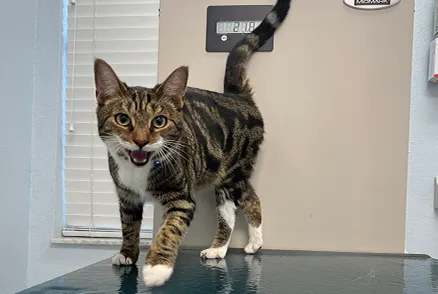Your furry family members hold a special place in your heart, nearly equal to their human counterparts. Naturally, you'd want to provide them with every tool to lead a long, healthy life.
That's where vaccines come in – a vital part of any pet's health regimen. Vaccinations help animals fight disease and contribute to the overall safety of pet populations. Understanding how vaccines work is vital to appreciate their importance and ensure your pet's well-being.
Below, we address some of the most frequently asked questions and provide their answers.

How Do Vaccines Work?
Vaccines administer a very low dose of a pathogen to a pet, so that their immune system can “learn” to fight it. When a virus or bacteria enters the animal’s body for the first time, they will not possess an immunity, but introducing the disease prompts their system to manufacture antibodies to help fight it, explains the American Veterinary Medical Association.
Those antibodies then live in their bloodstream from then on, so should they encounter that pathogen in real life, full-strength, they will already have the tools to fight it.
Will My Pet Be 100 Percent Immune?
This is a tricky question. Some animals who receive vaccines do develop total immunity. Others only develop partial immunity. Regular booster shots can prevent animals from losing part or all of their previous immunity.
When the entire population susceptible to a particular disease is vaccinated, "herd immunity" takes effect and the disease can’t find a foothold. Therefore, even if an animal didn’t have 100 percent immunity, it wouldn’t matter, because other animals couldn’t get infected and pass it on.
However, today’s reports show that not nearly enough animals are getting vaccinated. Let’s all work to change that.
Which Vaccines Does My Pet Need?
Your pet needs “core” vaccines and may need “non-core” vaccines. Core vaccines for dogs include canine parvovirus (PV) , canine distemper, infectious canine hepatitis (DHLPP) and rabies. Core inoculations for cats include feline panleukopenia, feline calicivirus, feline rhinotracheitis (FVRCP-C) and rabies.
Depending on your individual dog or cat, your vet may recommend other vaccines as well. For instance, if your cat is at risk of developing feline leukemia, your vet may advise a vaccine to help combat the chance.
Are There Side Effects to Vaccinating?
Usually, no. Vaccines are safe and well-vetted, and we’ve been using the same ones on dogs and cats for years. At most, pets may experience a bit of mild fever or discomfort associated with the low dose of the disease they’ve received. In rare cases, however, you may notice a serious allergic reaction: itching and swelling of the skin and face, vomiting and diarrhea, or difficulty breathing. If you notice any of this, please seek veterinary assistance right away.
Mostly, though, vaccinations are a routine part of any pet’s life, and there’s little for you to worry about.
Want to learn more about vaccinating today? Feel free to get in touch with us at (813) 991-6126!

